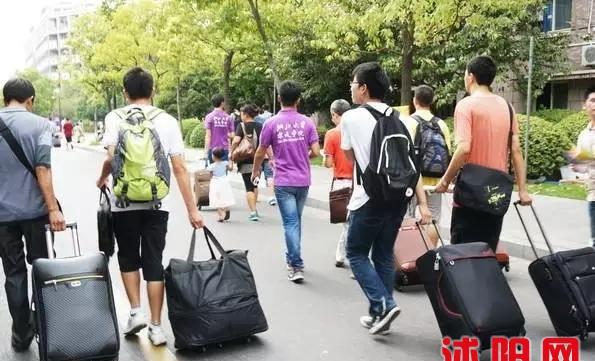
On August 26, 2016, the Shuyang court forcibly withheld 18,000 yuan of the salary income of the executor Huo Jia in a county accounting center, and on the same day, the deducted 11,850 yuan of execution money was handed over to the right holder Huo Yi (Huo Jia's daughter), who took the execution money sent by the court and boarded the last train before the start of school with peace of mind to complete her university studies.
Basic facts of the case
Huo Jia, male, is the executor of a certain maintenance dispute case, and the enforcement basis is the (2013) Shu Kaimin Chuzi No. xxxx Civil Mediation Document. In the case of the plaintiff (Huo Yi and Xu Bing) v. defendant (Huo Jia) in the custody dispute, the Shuyang court, through mediation presided over by the court, the parties voluntarily reached an agreement: the defendant Huo Jia's payment of the plaintiff Huo Yi's living expenses and medical expenses from August 2013 increased from the original 320 yuan to 600 yuan until Huo Yi turned 18 years old; the plaintiff Huo Yi's education expenses before graduating from university were borne by the defendant Huo Jia by 50%. After the agreement was signed, the defendant Huo Jia refused to pay Huo Yi's maintenance fees and corresponding education expenses.
It was also confirmed that Huo Jia and Xu Bing gave birth to a girl Huo Yi after marriage, because Huo Jia maintained an improper relationship with another woman, and after the facts of a certain county's "a certain committee (2006) xxx document" and "a political and legal (2006) xx document" were determined, Xu Bing learned of it and sued the court for divorce. Huo Jia and Xu Bing had been mediated by the Shuyang court in November 2006, Huo Yi lived with Xu Bing, and Huo Jia paid Xu Bing's children living expenses and medical expenses of 320 yuan before the 20th of each month since November 2006; in the future, the education expenses of Huo Yi, a girl born in marriage, will be borne by Xu Bing and Huo Jia.
Execution dynamics
After the Shuyang court accepted the case, the undertaker immediately issued relevant legal documents such as enforcement notices and enforcement rulings to the judgment debtor Huo Jia, and included them in the list of untrustworthy judgment debtors, but the judgment debtor Huo Jia refused to pay the cost of college education on the grounds that "Huo Yi is now an adult and does not pay maintenance".
Huo Yi is now an adult and does not give maintenance!
The court informed the enforcement basis of the case (2013) Shu Kai Min Chu Zi No. xxxx, paragraph 2 of the Civil Mediation Document. The party, Huo Yi, had the right to apply to the court for compulsory enforcement, but Huo Jia still did not take the initiative to perform its statutory obligations. After the court verified that Huo Jia, who worked in a certain county and town government, belonged to the sequence of state public officials and had a fixed salary income. Subsequently, on June 3, 2015, the undertaker issued a notice of assistance in enforcement to a county accounting center, withholding the salary income of the executor Huo Jia.
Adhering to the enforcement concept of "the maintenance payment must be implemented in place and the child must not be mistaken for going to college", the undertaker of the enforcement case withdrew the wages withheld at a county accounting center before the right holder Huo Yi went to college, and distributed the execution funds to the right holder Huo Yi on August 26 (the 2015 Shu Zhizi No. xxxx alimony dispute case) and November 2 (the 2016 Su 1322 xxxx alimony dispute case), respectively. Timely cashing in on the legitimate rights and interests of the right holder.
The judge said enforcement
Children are the biggest victims of parental divorce. In order to protect the child from secondary harm after the parents' divorce, parents are requested to consciously fulfill the corresponding legal obligations and moral responsibilities, and not to pour salt on the child's wounds.
If there are clear terms of the maintenance payment agreement in the divorce agreement of the parents, the paying party refuses to perform the obligation: if the two parties divorce by agreement, they need to go to the court to file a maintenance dispute lawsuit to confirm the validity of the maintenance payment clause in the divorce agreement before applying to the court for compulsory enforcement; If the parties divorce directly through court proceedings, the specific provisions for the payment of maintenance already in the judgment (mediation statement) may be directly applied to the court for enforcement. In this case, during the course of the trial, the court presided over the mediation, and the agreement voluntarily reached by the two parties complied with the relevant legal provisions, and the court confirmed it. If one party fails to perform the mediation agreement, the other party may apply to the people's court for compulsory enforcement with this mediation document.
Note: The pictures in this article are all from the network
(Zhou Shuangyan Shuyang Court)